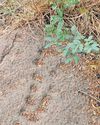
WHEN I was in school and college, studying India's history essentially meant learning about the Indo-Gangetic plains.
There were some references to the southern kingdoms-the Cholas, Pandyas, Satavahanas, Cheras, the Vijayanagar kingdom and the Bahmani sultanate. Little was known about the eastern parts of this country, except perhaps the Pala dynasty in Bengal that lasted four centuries.
The history of regions east of Bengal was hardly known. Administrators, army officers, explorers and historians had written bits of it. But the first comprehensive and reliable account was perhaps by Edward Gait, an Indian Civil Service officer. Ranjeet Shekhar Mooshahary, an IPS officer of the Kerala cadre with a passionate attachment to history, is one of the few modern-era scholars who have endeavoured to bring together the history of Assam and the Northeast. His 400-page book, Rediscovering the History of Assam: the Continent of Circe, is a serious attempt to see the history of Assam in the context of its gradual integration over the centuries into the Indian mainland.
Mooshahary, who distinguished himself as director general of the National Security Guard and later of the Border Security Force, also served as the governor of Meghalaya. The 'Mooshahary Committee' made important recommendations on police reforms and he continues his association with the area as chairman of the Indian Police Foundation.
The earliest known settlers in Assam were the Bodos or Boros, also called the Meches or Kacharis of Sino-Tibetan ancestry. They spread throughout the Brahmaputra, Tista and Kosi valleys over millennia in waves of migration. There was no collective name for the places they occupied, but in their long habitation they named the most important rivers with di or ti syllables, which meant river or water in their language.
Esta historia es de la edición September 07, 2024 de The New Indian Express.
Comience su prueba gratuita de Magzter GOLD de 7 días para acceder a miles de historias premium seleccionadas y a más de 9,000 revistas y periódicos.
Ya eres suscriptor ? Conectar
Esta historia es de la edición September 07, 2024 de The New Indian Express.
Comience su prueba gratuita de Magzter GOLD de 7 días para acceder a miles de historias premium seleccionadas y a más de 9,000 revistas y periódicos.
Ya eres suscriptor? Conectar
Kadhalikka Neramillai gets a release date
JAYAM Ravi's upcoming romantic film Kadhalikka Neramillai, directed by Kiruthiga Udhayanidhi, will hit theatres on January 14 as a Pongal release, the makers announced on New Year's Day.

CAMOUFLAGED CRIMES
For months, the public impression of the actor Blake Lively was not favorable at all.
A multi-hued New Year
The first month of every new year is like that fresh pack of Complan or Boost that promises everything you ever need—memory, health, clinically proven stamina, and ample vigour.

Discovering Games at the Most Unexpected Places
My journey to understand more about games has taken me to the strangest places, among them Jawaharlal Nehru University (JNU) in Delhi.

PANTONE'S PICK: CHIC OR CHEEKY?
EVERY year, Pantone crowns a new colour, sparking debates that rival the Met Gala red carpet.

Margazhi moves on timeless tunes
SIXTY-odd pairs of eyes faced the stage at Bharatiya Vidya Bhavan on Friday, waiting for the curtain to rise. A kid wearing an orange kurta and white pyjama excitedly told his friend, \"I am excited for my mother's performance.\"
BRIDGING CULTURES, BREAKING BOUNDARIES
WHAT does it take to carry centuries-old tradition in a different world? For Bharatanatyam dancer and artist Anugraha Sridhar, the answer is in blending cultural authenticity with contemporary relevance.

Bumrah overload biggest concern
India's strategy to have more all-rounders in the playing XI for batting depth seems to have increased workload of frontline pacers

Indian boxing in the mud, ex-pros seek system overhaul
NO sport had seen such a slump like boxing last year.

Vaishali clinches bronze in World Blitz
INDIA'S R Vaishali clinched a bronze in the women's section of the World Blitz Championship, capping another strong performance by the country's chess players after stalwart Koneru Humpy's title-winning show in the rapid event here.